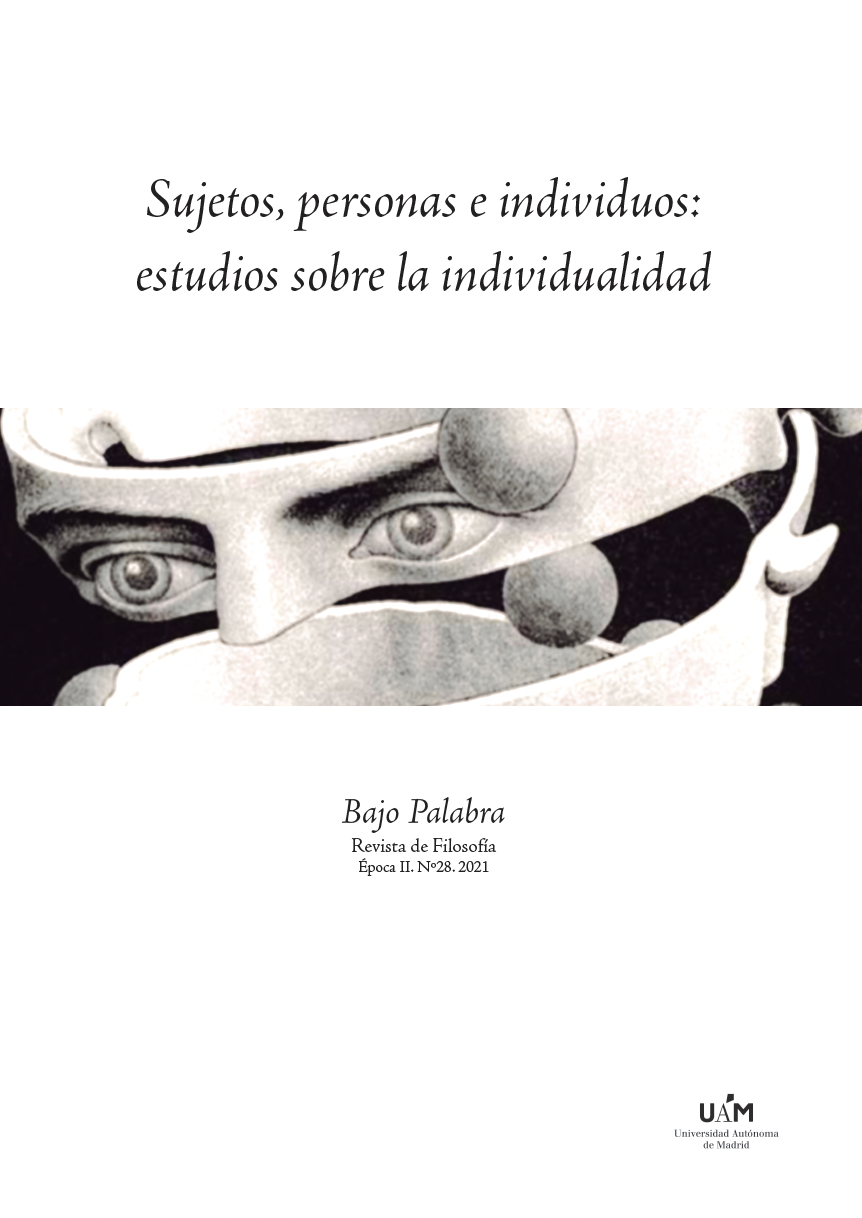Individuality and its paradoxes. An epistemological-political analysis and some examples
Keywords:
individuality, Human Rights, paradoxes, subject of law, autonomyCopyright (c) 2021 Isabel G. Gamero Cabrera

This work is licensed under a Creative Commons Attribution 4.0 International License.
Abstract
In this paper, I am going to clarify
some epistemological-political difficulties
that lay under the concept of “individual”.
I will follow Joan W. Scott’s work to argue that this concept entails a paradox,
because it is abstract and particular at the
same time. I will link this paradox with
the question about who is (or might be)
an individual and subject of law as well.
To this end, I will analyse some uses of this
concept in some scenarios and moments
of the European History, from the revolutionary France and the first debates about
who was citizen, to the consequences of
the decolonial process in Europe in the
20th Century. I will end up with some references about the rise of ultra-right parties
and the necessity of claim for a concept of
“individual”, despite all its difficulties and
paradoxes.
Downloads
References
Ahmed, S. (2015). La política cultural de las emociones. UNAM.
Ahmed, S. (2019). La promesa de la felicidad. Caja Negra.
Arruzza, C. (2015). Las sin parte. Matrimonios y divorcios entre feminismo y marxismo. Sylone.
Asamblea Nacional Francesa (1789). Déclaration des Droits de l’Homme et du
Citoyen. Conseil Constitutionnel Français. (https://www.conseil-constitutionnel.
fr/le-bloc-de-constitutionnalite/declaration-des-droits-de-l-homme-et-du-citoyen-de-1789).
Asamblea Nacional Francesa (1791). Constitution 1791. Conseil Constitutionnel
Français (https://www.conseil-constitutionnel.fr/les-constitutions-dans-l-histoire/constitution-de-1791).
Benhabib, S. (2002). El ser y el otro en la ética contemporánea. Gedisa.
Birulés, F. (2015). Entreactos. En torno a la política, el feminismo y el pensamiento.
Katz.
Brown, W. (2019). In the Ruins of Neoliberalism: The Rise of Anti-Democratic
Politics in the West. Columbia UP.
Brown, W. (2020). Derechos como paradojas, Las Torres de Lucca. Revista Internacional de Filosofía Política. Vol. 9, nº 17. Julio - diciembre 2020 (pp. 243-261).
Darat, N. (2021). Autonomía y vulnerabilidad. La ética del cuidado como
perspectiva crítica, Isegoría. Vol. 64, artículo 3 (pp. 1 - 11). DOI: https://doi.
org/10.3989/isegoria.2021.64.03
De Gouges, O. (1993). Declaración de derechos de la mujer y la ciudadana, en
A. Puleo (ed.) La Ilustración olvidada. La polémica de los sexos en el siglo XVIII.
Anthropos. [Texto original de 1791].
Fanon, F. (2009). Piel negra, máscaras blancas. Akal.
Leibniz, G. W. (2001). Monadología. Biblioteca Nueva.
Le Pen, M. (2012). Présidentielle 2022, en France 2. 27 de septiembre de 2021
Medina, J. (2012). Epistemology of Resistance. Harvard UP.
Michelet, J. (1854/2010). Mujeres de la revolución. Madrid: Trifaldi. [Texto original de 1854].
Mignolo, W. (2005). La idea de América Latina. La herida colonial y la opción
decolonial. Gedisa.
Mill, J. S. (1969). Essays on Ethics. Collected Works. Vol. X. Routledge.
Mills, Ch. (1998). Blackness Visible: Essays on Philosophy and Race. Cornell UP.
Mouffe, Ch. (2000). The Democratic Paradox. Verso.
Pettit, Ph. (1999). Republicanismo. Una teoría sobre la libertad y el gobierno. Paidós.
Rawls, J. (1979). Teoría de la justicia. Fondo de Cultura Económica.
Rowbotham, Sh. (1973). Women, Resistance and Revolution. Allen Lane.
Scott, J. W. (2012). Las mujeres y los derechos del hombre. Siglo XXI.
Staten, H. (1984). Wittgenstein and Derrida. University of Nebraska Press.
UNESCO (1948). Declaración Universal de Derechos Humanos (https://www.
un.org/es/about-us/universal-declaration-of-human-rights).
Wittgenstein, Ludwig (1988). Investigaciones Filosóficas. Crítica.

